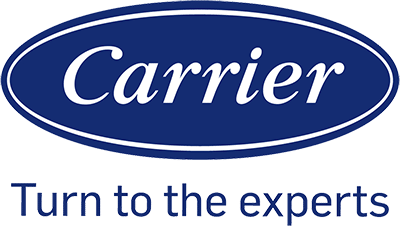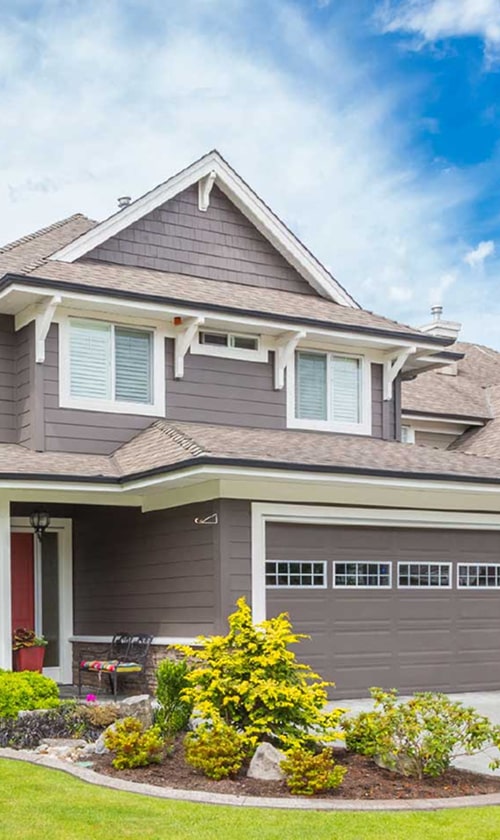The Basics of HVAC Maintenance

To ensure a well-functioning HVAC system, we concentrate on thorough cleaning, regular check-ups, and understanding the intricacies of the equipment’s components.
Understanding HVAC Systems and Their Components
The HVAC system stands for Heating, Ventilation, and Air Conditioning, encompassing all the equipment that cools and heats our home or business. An HVAC system typically includes an AC unit, furnace, ductwork, filters, and thermostat. Each of these components plays a critical role in air quality and thermal comfort. Filters, for example, must be replaced or cleaned regularly, which is a simple yet vital aspect of HVAC maintenance that helps extend the lifespan of the system and maintain air quality.
| Maintenance Task | Component | Frequency | Purpose |
|---|---|---|---|
| Replace filters | Air filter | Every 1-3 months | Preserve air quality, protect equipment |
| Clean ducts | Ductwork | Every 3-5 years | Prevent contaminants, ensure efficiency |
| Professional tune-up | Entire system | Annually | Optimize performance, prevent breakdowns |
Importance of Regular HVAC Check-Ups
Scheduling regular HVAC check-ups with a licensed HVAC technician is crucial for preventative maintenance. These check-ups can catch issues before they escalate into costly damages. During a maintenance visit, a technician will inspect the mechanical system, clean the AC system, and make necessary adjustments. Regular maintenance ensures our HVAC system operates at peak performance, which in turn reduces maintenance costs and energy bills. Emphasizing preventative care reduces downtime and improves the overall experience with our HVAC system.
- Inspection: Technicians should examine belts, coils, and wiring.
- Cleaning: All components, especially coils and air filters, must be cleaned to prevent blockages.
- Tune-ups: Necessary adjustments to the system to ensure optimal function.
By adhering to these HVAC maintenance fundamentals, we help prolong the lifetime of our equipment and secure a comfortable indoor environment.
Impact of Neglect on HVAC Efficiency and Cost
Neglecting regular HVAC maintenance reduces system efficiency and leads to higher energy expenditures. Understanding these implications helps in mitigating unnecessary costs.
How Neglect Lowers Efficiency and Increases Energy Bills
Maintenance and Efficiency: Ignoring routine maintenance can significantly reduce an HVAC system’s efficiency. A well-maintained system operates close to its original efficiency level, reducing the electric bill. In contrast, clogged filters, dirty coils, and worn parts cause the system to work harder, using more energy to achieve the same level of comfort.
- Filter replacement: Dirty or clogged filters restrict airflow and increase energy consumption. A clean filter optimizes airflow and energy efficiency.
- Coil cleaning: Dirt and debris on evaporator and condenser coils impair heat transfer, forcing the system to consume more energy.
Impact on Bills: The decline in system efficiency exacerbates energy use, resulting in heftier energy bills.
- Increased runtime
- Higher energy consumption
Energy costs rise as the HVAC system’s efficiency plummets due to neglect.
The Economic Consequences of Skipping Routine Maintenance
Long-Term Costs: Skipping routine maintenance can lead to costly repairs and even more expensive emergency repairs. Components that might require minor servicing could degrade over time, necessitating significant overhauls or total replacement.
- Maintenance Costs vs. Repair Costs: Regular maintenance typically incurs minor costs, while delayed servicing can lead to complex issues that are significantly more expensive to fix.
- Lifecycle Costs: Maintenance costs are part of the anticipated expenses during an HVAC system’s lifecycle. Uncared for systems tend to have a shortened lifespan and incur additional costs.
Energy Efficiency: An inefficient system not only raises immediate energy bills but also contributes to increased maintenance costs in the long run. It’s a compounding effect where neglect leads to reduced efficiency, increased operational costs, and the potential need for premature system replacement.
Seasonal Maintenance and Its Effect on HVAC Longevity

We must recognize the crucial role seasonal maintenance plays in extending the longevity of our HVAC systems. Adequately preparing for seasonal changes not only helps in maintaining system efficiency but also in ensuring optimal air quality throughout the year.
Preparing Your HVAC System for Summer Heat
Key Actions:
- Inspect and Clean: Before summer arrives, it’s essential to inspect our AC system for any signs of wear and tear. Cleaning or replacing air filters is a must to prevent airflow blockage and maintain air quality.
- Calibrate Thermostats: Ensure thermostats are properly calibrated to avoid unnecessary strain on the system when temperatures soar.
Benefits:
- Enhanced efficiency: A well-maintained AC unit requires less energy to cool our homes.
- Improved air quality: Clean filters trap pollutants better, providing us with healthier indoor air.
Fall and Spring Tune-Ups to Prolong System Life
Key Actions:
- Check and Service: During fall and spring, we schedule tune-ups to check all HVAC components and service any parts that need attention.
- Balance the System: Ensuring that the system is balanced with the correct refrigerant levels helps avoid overworking the unit.
Benefits:
- Increased lifespan: Regular tune-ups can prevent small issues from becoming larger, potentially system-ending problems.
- Consistent efficiency: Seasonal checks ensure that our HVAC system runs at peak efficiency year-round.
Common Problems and DIY Solutions in HVAC Maintenance
HVAC systems are essential for comfort, yet they are prone to several common issues. Let’s explore DIY solutions to tackle minor repairs and leaks, and preventative measures to avert obstructions and overuse, ensuring our systems run smoothly.
Tackling Minor Repairs and Leaks
We must regularly inspect our HVAC system for signs of wear and tear. Minor repairs can often be addressed without the need for professional help. For instance:
- Loose fittings: Tighten or replace to prevent leaks.
- Worn belts and pulleys: Replace these to avoid further damage.
Leaks are often a result of faulty seals or connections. Here’s how we can address them:
- Identify the source of the leak, often at joints or connections.
- Apply HVAC sealant to the area to patch small leaks.
- If the leak persists, consider replacing the entire piece involved.
Preventative Measures to Avoid Obstructions and Overuse
Preventative maintenance is the key to an efficient AC system. To prevent obstructions and reduce the chance of an overburdened HVAC system:
- Replace filters regularly to ensure clean airflow and prevent obstructions.
- Clear debris from around outdoor equipment to avoid blockages.
- Inspect ductwork for potential obstructions; remove any found.
For overuse prevention:
- Program your thermostat to optimize usage and relieve equipment stress.
- Inspect and maintain refrigerant levels; low levels can strain the system.
By adhering to these guidelines, we can often avoid the need for emergency repairs and extend the life of our HVAC equipment.
Enhancing Comfort and Air Quality Through Expert Care
Maintaining a healthy indoor environment hinges on two pivotal concepts: comfort and air quality. These factors are deeply interconnected, with each significantly influencing the other. By seeking skilled HVAC services, we assure both an increase in comfort and a notable enhancement of indoor air quality.
The Role of Expert Maintenance in Indoor Air Quality
Regular expert maintenance is paramount in sustaining high indoor air quality. Professional expertise ensures that air filters, which are crucial for capturing contaminants, are replaced and serviced effectively. HVAC companies employ targeted strategies to keep systems clean and reduce the presence of pollutants. Here’s how:
- Inspection: Technicians inspect for signs of mold, dust, and debris in air ducts.
- Cleaning: Comprehensive cleaning of entire systems to eliminate accumulated contaminants.
- Filter Replacement: Timely replacement of air filters to maintain purity of air flow.
Through these actions, we lessen the concentration of airborne allergens and toxins, leading to a healthful living environment.
Achieving Optimal Comfort with Skilled HVAC Services
Optimal comfort is a composite measure including temperature and humidity control, which skilled HVAC services can adeptly balance. Expert maintenance not only ensures efficient operation but also fine-tunes these systems to respond to individual comfort needs. Here is what HVAC experts do to maximize comfort:
- Temperature Management: Precise calibration of thermostats and regular checks on heating and cooling cycles.
- Humidity Regulation: Implementation of dehumidifiers or humidifiers to keep indoor humidity levels within a comfortable range.
These adjustments made by professionals allow us, the users, to enjoy an ideally tempered and humidity-managed environment.
Frequently Asked Questions
Preventative maintenance is crucial for the longevity and efficiency of HVAC systems. Regular checks mitigate a multitude of issues ranging from reduced performance to higher operational costs, ensuring safety and comfort in our environments.
What are the potential consequences of postponing regular HVAC system servicing?
Postponing regular HVAC servicing can result in a decline in air quality and an increase in repair costs. Systems may develop issues such as poor airflow, which could compromise the overall comfort in our homes or businesses.
How does skipping HVAC maintenance affect system performance and efficiency?
Skipping maintenance tasks leads to accumulated dust and wear, causing the HVAC system to work harder. This not only diminishes performance and efficiency but also accelerates the need for potentially costly repairs due to increased strain on the system’s components.
What are common issues that arise from inadequate HVAC maintenance?
Common issues resulting from inadequate maintenance include refrigerant leaks, dirty coils, and clogged filters. Such problems can decrease the system’s efficiency and, if not addressed, may lead to complete system failure.
In what ways does regular HVAC maintenance contribute to system longevity?
Regular HVAC maintenance keeps all components running smoothly and can identify small issues before they become major problems. This foresight helps us extend the operational lifespan of the HVAC system, reducing the likelihood of premature replacement.
How can neglecting HVAC maintenance lead to increased energy costs?
Neglected HVAC maintenance can cause systems to overexert themselves, leading to higher energy use and costs. Proper upkeep ensures that the system operates at peak efficiency, ultimately conserving energy and keeping expenses down.
What safety risks are associated with poor HVAC system upkeep?
Poor HVAC system upkeep can introduce safety risks such as electrical hazards, fire risk from overloaded circuits, and the potential for carbon monoxide leaks in combustion-based systems. Keeping up with maintenance is key to ensuring a safe environment.




